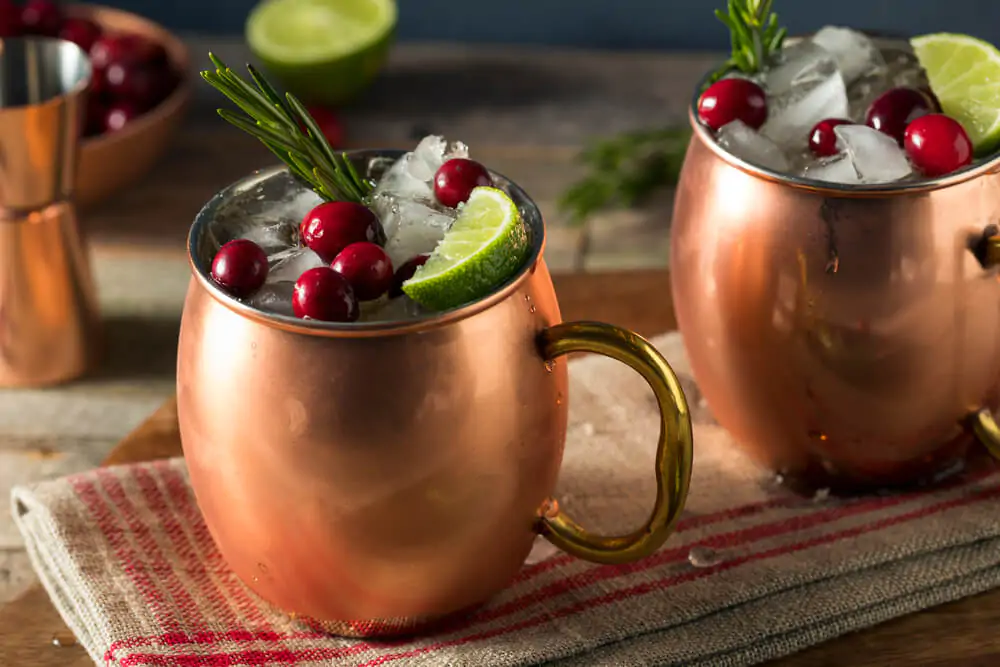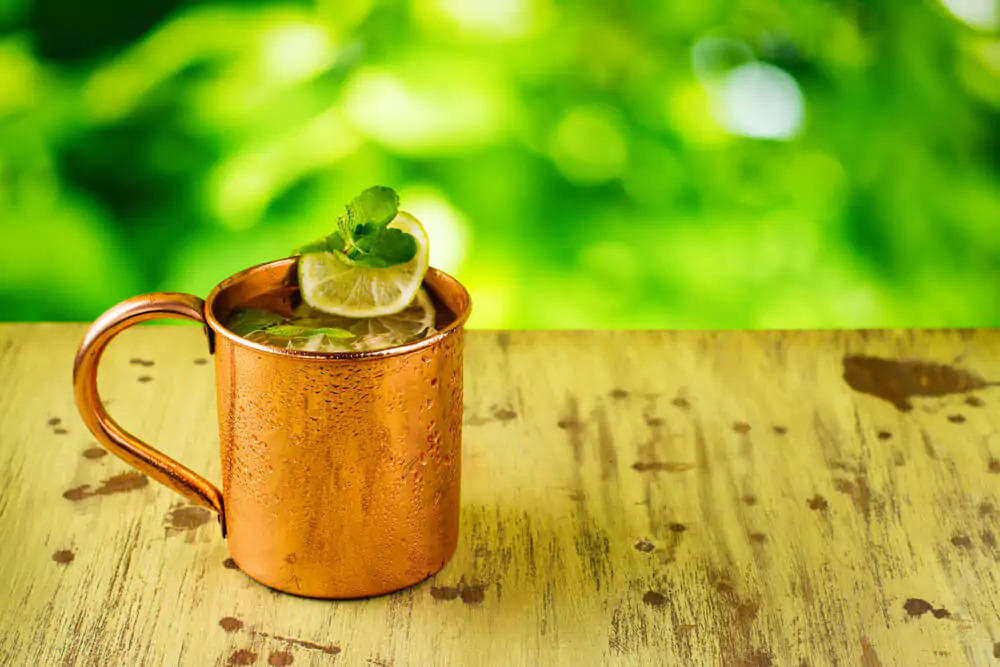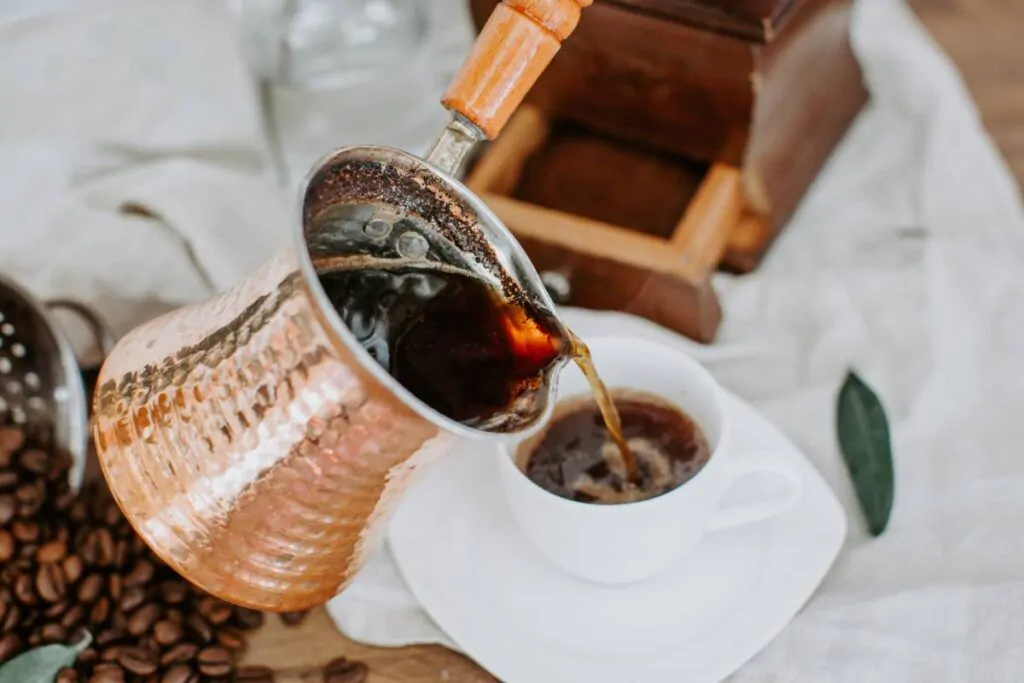Can you use copper mugs for coffee? This post will help clear your doubts so you can enjoy your coffee without worry.

It’s almost impossible to mention copper mugs without adding the Moscow Mule in your statement. There is also a report by the Iowa Alcoholic Beverage Division stating that drinking from a copper vessel is unsafe for human health. The report said that the mugs should not be used to drink anything below a pH of 6.0, such as vinegar, wine, or fruit juice.
The Centers for Disease Control states that ingestion of high copper levels could cause vomiting, diarrhea, nausea, and even death in extreme cases.
So, now you know that too much copper is not healthy, but is it safe for drinking coffee?
Yes. Today, the acceptable drinking copper mugs are those lined with stainless steel material, nickel, or tin. Coffee has some acidic properties that can dissolve some copper ions and make your coffee taste like metal.
It also boils down to how much coffee you drink every day. Chances of you ingesting “unsafe ” amounts of copper are very low, especially if you take one or two cups of coffee every day. So, unless you drink from it all day, every day, or eat the cup, you’ll most likely be fine.
On a higher note, if you’re worried about too much copper, consider swapping your copper mugs with ceramic mugs or any other vessel every now and then, or get a copper mug with lining to melt your worry.
What Is A Copper Mug?

Copper mugs are drinking vessels made of copper. Some are lined with stainless steel, while others are not. Copper mugs became popular alongside Moscow Mule vodka cocktails that originated in the 1940s in the USA.
Three entrepreneurs who were having difficulty selling their individual products; copper mugs, ginger beer, and Vodka, decided to combine their products to push sales. They came up with a cocktail of vodka and ginger beer which was served in copper mugs.
The mugs were considered near perfect as they maintained the correct temperature of the cocktail and enhanced its flavors. The combination became so popular that the copper mugs came to be known as the Moscow Mule mugs.
The mugs have made a really big comeback in recent years, adding that gleaming, warm and glorious accent to your decor. They have evolved in shapes, designs, styles, and uses and carry an antique appeal with their reddish-gold surface and evoke a feeling of belonging.
Can You Use Copper Mugs For Coffee?

Yes, absolutely. When it comes to your coffee, you want to make sure that your mug doesn’t interfere with taste, temperature, vibrancy, or texture. That means your copper mug should help you achieve this, to enjoy your cup of joe.
Consequently, copper mugs are not the best conductors of heat– they transfer heat from one end to another. That means you will end up burning your hands and mouth or drinking cold coffee. Similarly, your coffee will likely combine with copper ions, which can lead to serious health problems.
For the best coffee experience, it’s prudent to use lined copper mugs as stainless steel has a lower thermal conductor and does not alter the taste of your coffee.
How To Clean And Remove Stains From Copper Mugs
Copper mugs can be washed with a soft cloth and soapy water immediately after use and dried immediately to avoid oxidation. When your mug reacts with air, it develops a greenish layer known as patina. The patina makes your mug look ugly and, worse, alters the taste of your coffee.
To remove the stain, you can use lemon juice and salt or vinegar, and baking soda. Both options work excellently, leaving a cleaner, smoother and shining mug.
Copper mugs are not dishwasher friendly, so please do not attempt to wash them in the dishwasher. The dishwasher will accelerate copper corrosion, leading to copper leaks. It also weakens the tin or stainless steel material used to line, causing it to scratch, flake or crack, which exposes you to copper ingestion.

